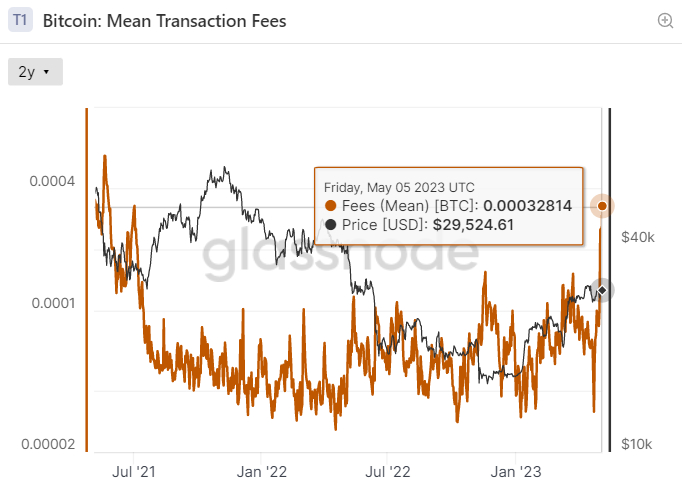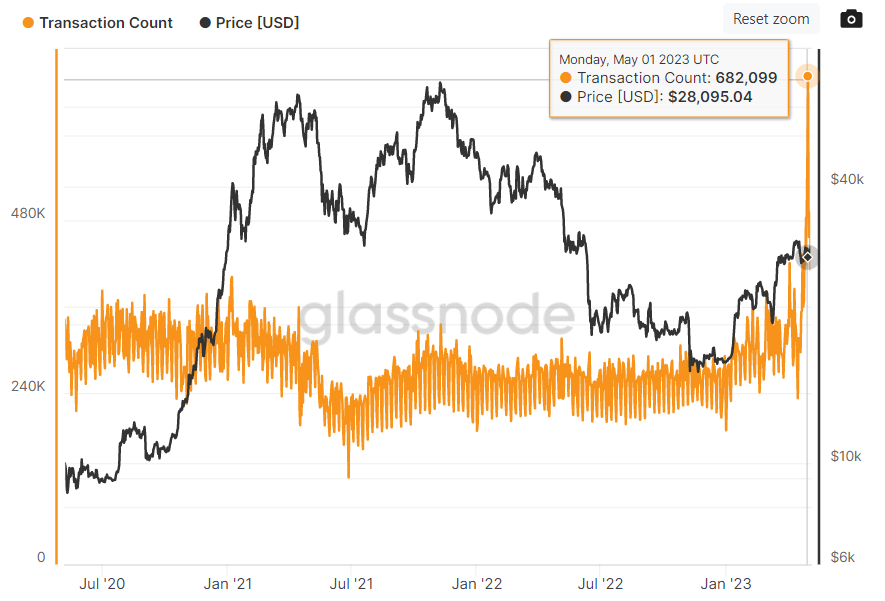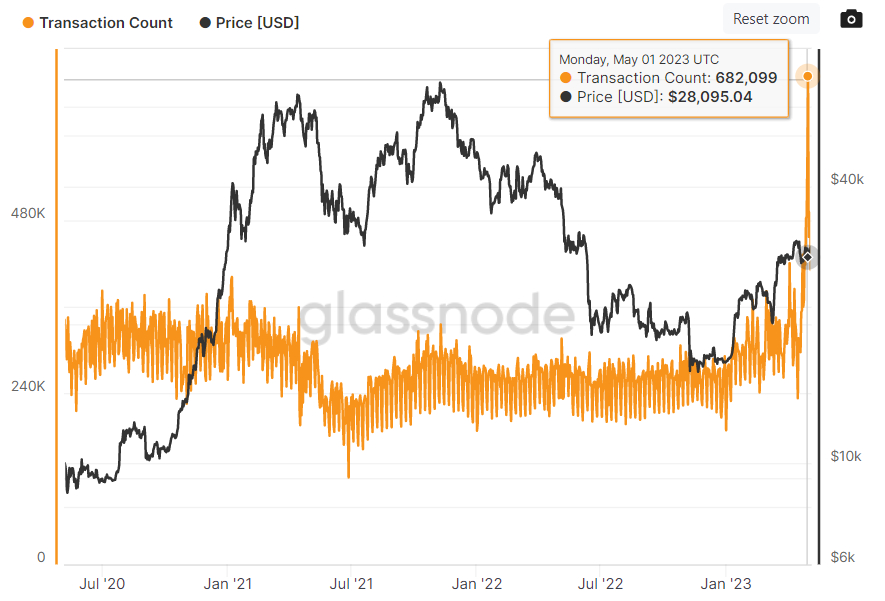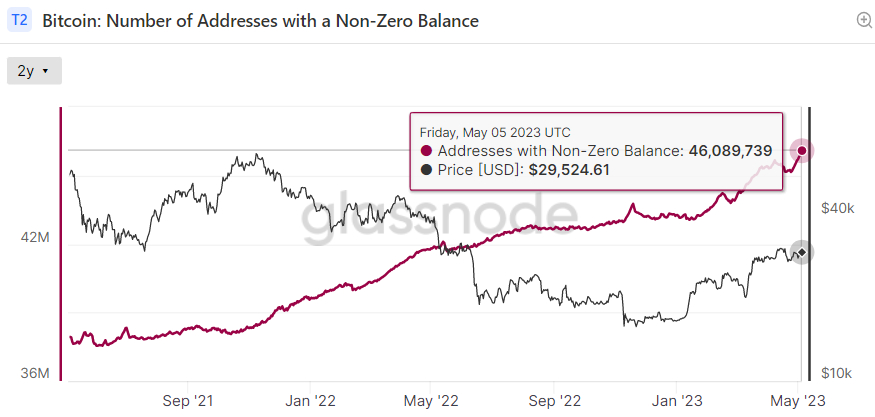[ad_1]

The mean fee to conduct a transaction on the Bitcoin network just shot to its highest level in nearly two years, as per data presented by crypto on-chain analytics firm Glassnode.

On Friday, the average transaction fee clocked in at 0.00032814 BTC, up more than ten-fold from a dip to 0.00003161 on the 23rd of April.
At the current Bitcoin price of around $29,600, that implies a transaction fee of nearly $10.
That’s a more than 10x rise versus the average transaction price of under $1.0 on the 23rd of April (when the Bitcoin price was hovering in the low-$27,000s).
Analysts have attributed the spike in network fees to a renewed meme coin craze (PEPE and other smaller meme coin rivals like SPONGE have been posting exponential gains in recent sessions) that has ignited a surge in transactions relating to so-called BRC-20 tokens.
Having taken its inspiration from the highly successful ecosystem of ERC-20 crypto tokens that exist on the Ethereum blockchain, the experimental new BRC-20 token standard has been taking Bitcoin by storm since its launch in March.
The standard allows users to issue and transfer fungible tokens via the Bitcoin blockchain.
The BRC-20 craze hasn’t just triggered a jump in network fees.
Daily Bitcoin transactions hit an all-time high of around 680,000 earlier this week.

Meanwhile, higher fees are bringing Bitcoin miners online.
Earlier this week, the Bitcoin network’s hash rate hit an all-time high level of nearly 440 Exahashes per second.

And the growing BRC-20 craze seems to be bringing new users to the network.
Addresses with a non-zero BTC balance just hit a new record high above 46 million.

Where Next for the BTC Price?
Signs of strength in the Bitcoin network as its “use case” is arguably expanded by the growing BRC-20 movement should be a long-term tailwind for the world’s largest cryptocurrency by market capitalization.
But in the short term, the Bitcoin appears more focused on macro and technical factors.
Regarding the latter, with the Fed’s rate tightening cycle now seemingly over and a cutting cycling likely to start later this year, and with the US banking crisis seemingly snowballing, risks seem tilted to the upside for Bitcoin in the near future.
Bitcoin typically performs well in an environment of easing financial conditions and, since March, has derived a safe-haven bid from financial stability concerns, given rising demand for “hard-money” alternatives to traditional currencies (hence why gold has rallied back to close to record highs).
Meanwhile, Bitcoin’s near-term technicals also look solid.
The cryptocurrency is probing for a bullish breakout of a pennant structure that it has been confined within since mid-April.

If Bitcoin can break and hold above $30,000 in the next few days, the door should be open for a swift jump back to yearly highs in the $31,000s and beyond.
[ad_2]
Source link
